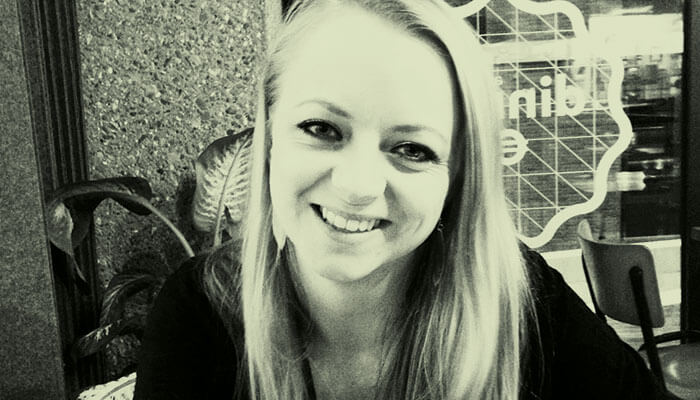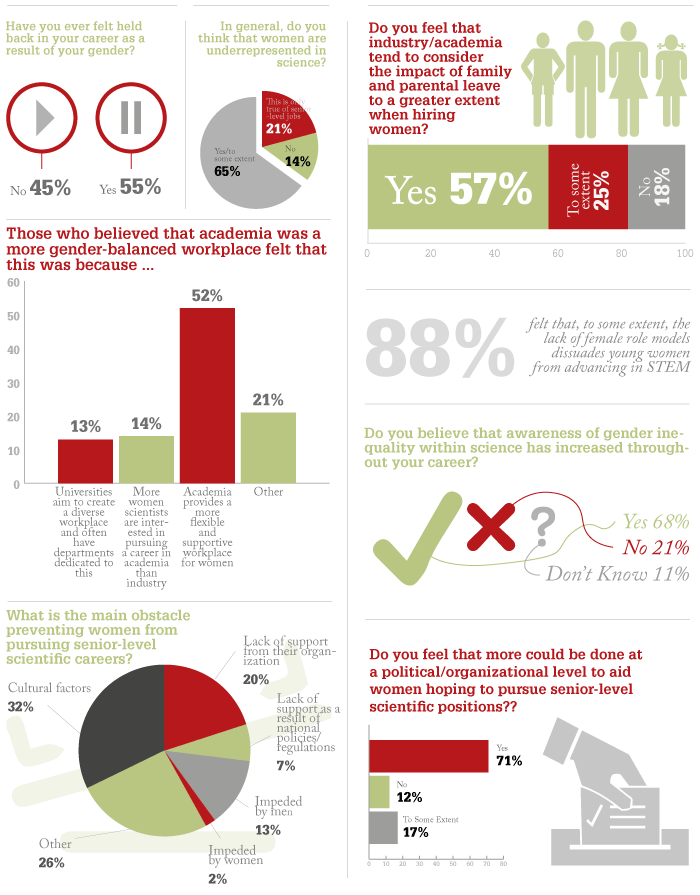
I believe that the majority of young chemists do not see the gender gap. We have come through our undergraduate degree as a mix of men and women, all treated equally, and it has resulted in us expecting to be treated equally in future positions. During my undergraduate degree, the University of Strathclyde had a large number of women studying chemistry and my particular degree – Chemistry with Drug Discovery – was mostly female. I have now spent over seven years in academia and during this time carried out secondments with Takeda Pharmaceuticals, GSK and the Netherlands Cancer Institute. The labs that I have worked in were all a mix of men and women, and I have not experienced gender discrimination so far in my career. In fact, I have found that it can be an advantage to be female as there is a drive to increase the number of female scientists. Currently, I am planning ahead and looking at post-doctorate positions for after my PhD. These are often funded by fellowships, and there are a number of organizations aimed at funding female researchers.

Not everyone has experienced the equality that I have – or worked alongside as many successful female scientists. The staff of department I currently work in is heavily male-orientated. At present there are no female lecturers in the organic chemistry division, but the other areas are more balanced. With respect to the postgraduates it is again more balanced, which is hopefully a sign of things to come – where we will see more female scientists in academic roles. However, it is well known that many women don’t wish to stay in academia after their PhD due to the difficulties of balancing work with starting a family. Sharing examples of successful female researchers with young people will help to encourage more women to pursue science as a career. If they are told from an early stage that gender is not a problem, then they won’t expect it to be a problem. I believe anyone who has good intentions and strong motivation will get what they aim for. But telling someone that they may experience discrimination will plant seeds of expectation, which could lead to them not pursuing their dreams for fear of failure. Obviously, we shouldn’t ignore the problems, but spreading the good news of successful women in science will help to encourage those with any doubts.I always enjoy meeting other chemists, regardless of gender, but I do get that feeling of pride when I see a female chemist at the top of their field. It gives me encouragement that I can achieve all that I aim to.
What I do and why I love it:
I am a medicinal chemist, designing and synthesizing novel compounds. I love it because it challenges me every day, and also because I am creating new molecules that will hopefully one day help people.The Top 50 Women Power List…
It would be great positive reinforcement for female researchers who are concerned about discrimination. And we might end up with a more current poster girl chemist than Marie Curie – although we do all love her, of course!A piece of advice…
Do not fear a glass ceiling – in my experience, it isn’t there. Chemistry is a small world with a great network, so speak to other scientists about what you would like to do, and they will help you to find the right person to speak to. Lisa is a PhD Student at the University of Strathclyde. She is currently working on a medicinal chemistry project with Allan J. B. Watson in collaboration with GlaxoSmithKline that focuses on lead optimization of targets for fibrosis drug discovery.Towards Meritocracy Making Great Strides Leaning In An Ongoing Effort On Balance Beyond the ‘Old Boys Club’




